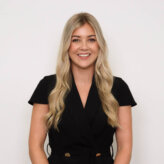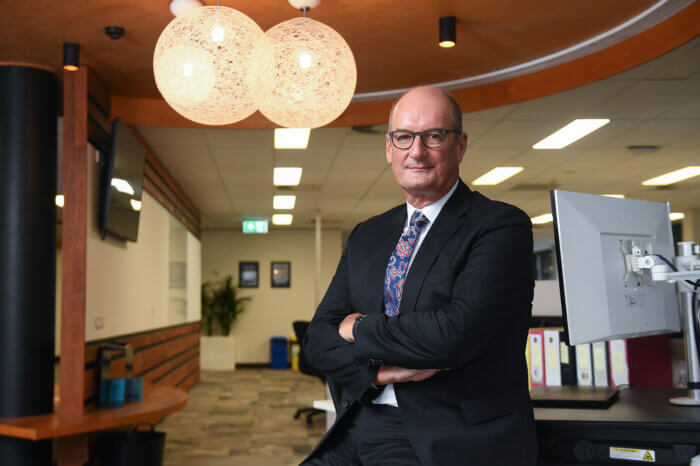
The Australian domestic dream has forever been depicted as a couple with two kids and a white picket fence, but not anymore.
A Compare the Market survey revealed 16% of Aussies wouldn’t have kids or would delay having them due to the cost-of-living crisis.*
The generation that was most likely not to have or delay having kids was Gen Z (41.7%), followed by Millennials (28.10%).
This compares to 16% that said they never initially planned to have kids.
Compare the Market General Manager of Money, Stephen Zeller, said the startling figures show just how many Australian households are doing it tough right now.
“There could be a multitude of reasons why people are deciding not to have kids like climate change, overpopulation, career opportunity and independence – but money tends to be a denominating factor,” Mr Zeller said.
“It seems the RBA’s record run of interest rate rises is sapping the money out of many people’s wallets.
“Between that and the exploding prices of fuel, energy, gas and groceries – it’s an expensive time to be alive, let alone take care of another person financially.
“According to a 2018 Government report, the weekly costs of raising a child range from $140 for unemployed families and $170 for low-paid families.
“The report looked at the costs of children’s food, clothing, footwear, health, personal care, school expenses, housing expenses and transport costs.
“With most costs increasing since 2018, the minimum cost of raising a child would have undoubtedly increased by now.”
But for those that are planning to have kids, the data showed more than a third of Aussies aren’t financially preparing for their child’s future.
“Failing to prepare is preparing to fail. Parents need to have some financial plans for their child’s future.
“Before a child is born, people should assess their finances to evaluate the cost of having a kid.
“The cost of pregnancy and childbirth alone varies between $1,500 – $20,000. Then there are the costs of setting up a home with a cot, mattress, nappies, formula and food.
“Day-care costs up to $142 per day in Brisbane. School fees start at $6,000 per year and go up and beyond $20,000 annually.
“So before you have a kid, you have to really think about what kind of life you’d like them to have, whether you can afford everything you want to provide for them whilst still living the life you’d like to live as well.
“It’s proving to be a tough time for many families right now. Particularly so for the 9% of parents who have confessed to dipping into their child’s savings.”
Mr Zeller shares six was to set up a bright future for kids below. Remember, you should always consider obtaining advice from a licensed financial adviser who can take your circumstances into account.
1. Forward thinking
Have a conversation with your partner about money. If you’re raising a child solo, block out some time in your calendar to sit down and consider the following:
· How would you like to manage household expenses?
· Would you like your child to go to public or private school?
· What are your financial goals and priorities?
· Should you be putting off buying big ticket items to save money for your child?
· Do you have any debt you need to pay off before the baby arrives?
2. Saving
Consider whether you’ll open up a separate savings account for your child. Savings accounts are easy to set up and are readily accessible. While they may be a good way to help save and are low, they also have a low potential return.
But beware of tax – interest earned by savings accounts are considered to be “assessable income”. So, if the bank account is for your child, then it’s crucial to consider the special tax rules that apply to under-18s. More information about tax can be found on the ATO’s website.
3. Managed funds
If you have the money to invest and want to pay a professional to make financially smart decisions for you, a managed fund might be for you. These come in a range of different shapes and sizes. There are:
· Listed funds called “Exchange Traded Funds”
· Listed Investment Companies
· Passive investment funds and
· Actively managed funds
You can find more information about the different types of managed funds on the government’s Moneysmart website.
It’s important to diversify your investments, so your money can be invested across a range of asset classes, spreading your risk. There are managed funds with different levels of risk, so it’s essential to compare and do your research before choosing a fund.
4. Shares
When you buy shares, you’re buying a small part of a company, so if the value of the company increases over time, you have therefore gained capital. There’s no point in ‘day trading’ – It’s just like adult gambling. It is better to buy shares for the long-term game and select companies that pay good dividends.
As any stockbroker will tell you, ‘there’s no reward without risk’ – but you have to think about how much of a risk you want to take in the share market. Deciding which shares to buy can be a tricky process that requires much research and analysis but could have a high potential return.
5. Superfund
Just like a bank account, you can transfer money into a super fund. A super fund is a tax-effective long-term investment, but the money will remain secure in the fund until you meet a condition of release, like retirement. This means the money in super funds can grow and compound for many years, but it can’t be touched.
6. Insurance bonds
Insurance or investment bonds are similar to managed funds; they’re both tax effective and not accessible for many years. Insurance bonds have special rules around when you can make contributions and withdrawals – you usually can’t touch the money for 10 or more years, and providing you make no withdrawals during this period, any earnings will be tax-free. So this type of investment is good for someone who won’t need access to that money.
*Survey of 1,005 Australians, conducted January 2023.
Natasha Innes | 0416 705 514 | [email protected]
Compare the Market is a comparison service that takes the hard work out of shopping around. We make it Simples for Australians to compare and buy insurance, energy, and travel quickly and easily. Our easy-to-use comparison tool helps you look for a range of products that may suit your needs and benefit your back pocket.








